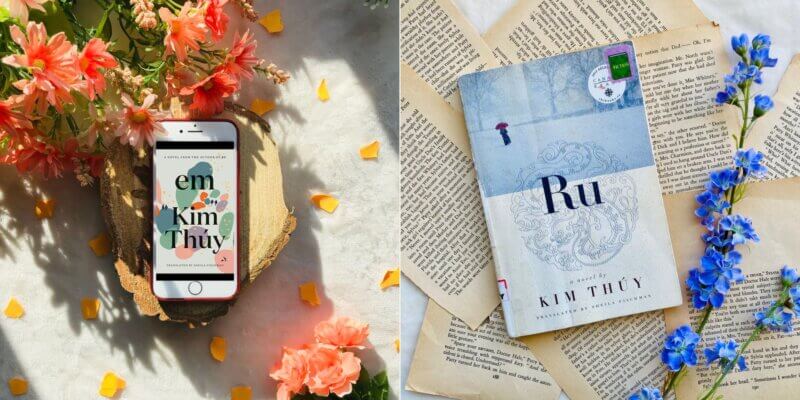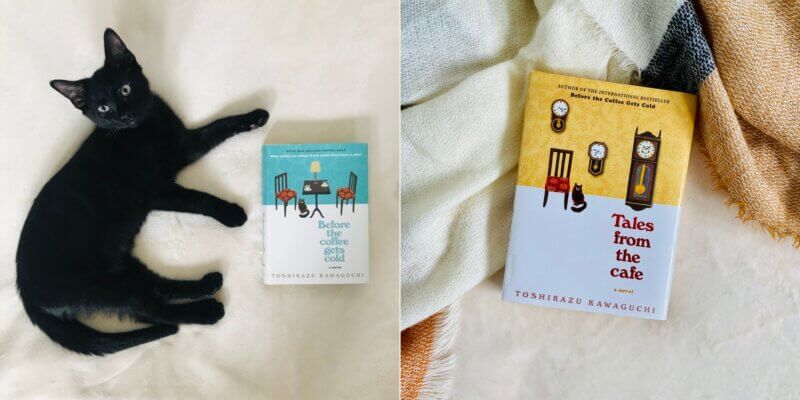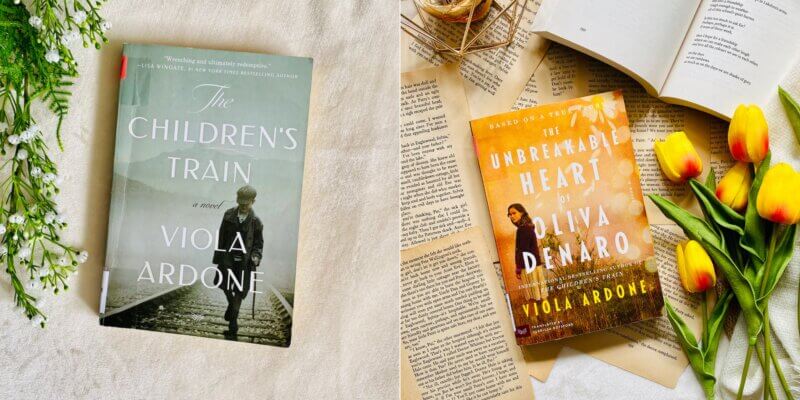I grew up surrounded by languages. At school, I learned English, Hindi and (briefly) French. At home, my grandparents spoke Punjabi and Bengali. Since English was the medium of instruction in my school years, I read many translated texts as part of the curriculum. Looking back, being surrounded by a tapestry of languages, my appreciation for translated literature began early, though it was only when I started sharing my thoughts on my blog that I recognized the rich experiences translations have offered me. Over the course of these 5 years, I have come across many translated works and to date, I am excited to find translated books.
Having grown up reading about my culture in English, I find translated books as a way to learn about other cultures, places and times without the knowledge of the language or having been there. There is something distinctive about each culture and place and a translator plays a key role in keeping those situational, contextual, and regional aspects of the original work. I can’t experience the original language but the translation lets me experience it through another authentic lens.
In today’s TBR Tales, I want to highlight three authors whose works I return to. Let’s see how these authors who write in French, Japanese, and Italian made their way onto my bookshelves and forever in my heart.

Kim Thúy
Bio:
Kim Thúy left Vietnam with the boat people at the age of ten and settled with her family in Quebec.
A graduate in translation and law, the writer has worked as a seamstress, interpreter, lawyer and restaurant owner-chef.
Kim Thúy has received several awards, including the 2010 Governor General’s Literary Award, and was one of four finalists for the Alternative Nobel Prize in 2018. She is a Knight of the National Order of Quebec.
Her books, which have sold over 850,000 copies worldwide, have been translated into 31 languages and 43 countries and territories. Kim Thúy lives in Montreal and devotes herself to writing.
Source: Kim’s website
My Intersection with Her Books:
Kim’s debut, Ru, had been on my TBR for a long time but the first book I read by her was Em back in 2021, originally written in French and translated by Sheila Fischman to English. Kim writes about the Vietnamese-French experience. Through Em, I learned about the heavy influence that the French had on Vietnamese culture during their rule. There are so many words from French that are seeped into the Vietnamese language, and vice versa.

This year, I made time for Ru. Also translated by Sheila Fischman, the audiobook is narrated by Kim herself. It was a lovely experience to hear her read. It is not surprising that Ru by Kim Thúy has won multiple awards. It’s like reading a diary entry. A woman, thinking back to her childhood, past and present, reflecting on how she came to be who she is and the life she has created for herself and her children. One of my favorite parts of this book was her reflection on the choices her parents made—decisions she didn’t understand as a child but now sees as integral to her own identity as a mother.
Most of the author’s books have one word names with significance in French or Vietnamese.
Links:
- Ru by Kim Thúy | Goodreads
- My review of Ru
- Em by Kim Thúy | Goodreads
- My review of Em
- All of Kim Thúy’s books on Goodreads

Toshikazu Kawaguchi
Bio:
Toshikazu Kawaguchi was born in Osaka, Japan, in 1971. He has produced, directed and written for the theatrical group Sonic Snail. As a playwright, his works include COUPLE, Sunset Song and family time. His play Before the Coffee Gets Cold won the grand prize at the Suginami Drama Festival. This is his debut as an author. Before the Coffee Gets Cold has become an international bestseller and has been adapted for the screen in Japan.
Source for Bio: HarperCollins Canada
Source for Photo: Pan Macmillan
My Intersection with His Books:
Ariel and I read Before the Coffee Gets Cold back in 2021. We saw it a lot on social media tha year and finally decided to check it out. Translated by Geoffrey Trousselot, this is the first in the 5-book series about a little coffee shop in Japan. Legend has it that one can travel in time briefly and meet someone who was at the coffee store over a cup of coffee. The café has a timeless and ageless feel. I particularly love this series because it reminded me of Japan when I visited years ago.

I read the second book, Tales from the Café in 2023. The cafe has been around for as long as people can remember. To travel, the coffee has to be poured by the women of the Tokita family. Though the first book was more of a short stories collection since the perspective of the customer is key to its organization, this book felt very much like a novel. Intertwined in between the customer’s visits to the past and future, the stories also shed light on the life of the cafe owners. Over the course of four stories set in four seasons, Tales from the Cafe introduces some unforgettable characters and develops others more thoroughly from Before the Coffee gets Cold.
I am very excited to see what the follow-up books have to offer.
Links:
- Before the Coffee Gets Cold by Toshikazu Kawaguchi | Goodreads
- Ariel and I discuss Before the Coffee Gets Cold
- Tales from the Café by Toshikazu Kawaguchi | Goodreads
- My review of Tales from the Café
- All books by Toshikazu Kawaguchi on Goodreads
Viola Ardone
Bio:
Viola Ardone was born in Naples in 1974. A high school Latin and Italian teacher, she holds a degree in literature and worked in academic publishing. She is the author of two previous novels in Italian, La ricetta del cuore in subbuglio and Una rivoluzione sentimentale.
Source: HarperCollins Publishers
My Intersection with Her Books:
I love war fiction and over the years, I have found experiences that aren’t about the soldiers or spies or the love they left behind. Volia Ardone’s focus on the often overlooked impacts of war—on children and women—offers a poignant, humanizing perspective on historical events. The Children’s Train is set in post world war south Italy. There is abject poverty and the Communists are trying to get the kids away from the dreadful place to the North, where there is food and safety. Amerigo’s mother seems to think of him and her life as drudgery and is unhappy about her situation and sends him away to the north. The more time Amerigo spends with the people in the north, the more he likes them. He compares them with back home and as he sees other kids happy around him, he feels he will forget home. This book focused on the evolving relationship between a mother and son.

In her next book, The Unbreakable Heart of Oliva Denora, Viola centred the story around a daughter and father in 1960s Sicily. Throughout the book, the societal position of women is analyzed but through the act of “elopement” (read “kidnapping”) and rape, darkest aspects are exposed. Oliva was encouraged by friends of family in the town to marry the man who had done her and the family grave harm and when she decided that she did not want to, that she would rather lodge a formal complaint with the authorities and see him punished, the town was divided. Her father supports her in her pursuit of justice.
Clarissa Botsford is the translator for both these books and in The Unbreakable Heart of Oliva Denora shares her experience of translating this story from Italian – the choices she faced and how she handled them.
Links:
- The Children’s Train by Viola Ardone | Goodreads
- My review of The Children’s Train
- The Unbreakable Heart of Oliva Denaro by Viola Ardone | Goodreads
- My review of The Unbreakable Heart of Oliva Denaro
- All books by Viola Ardone on Goodreads
Reflections on These Translated Works
While Kim Thúy and Viola Ardone write about the life of people in war times and historical fiction that teaches about that period in history, Toshikazu Kawaguchi’s stories have a more personal touch. They are relatable in the shared human experiences of grief and love.
It is lovely to reflect on these authors and see the way they are connected to me. Though I may have known about them longer, I picked them first in 2021 and returned to them all in 2023. It is nice to see the same translators for different books, particularly those that are not series, and I wonder if multiple translations ever exist in a language and what nuances might emerge from each translator’s distinct cultural lens. Something to investigate in the future.
Final Thoughts and Invitations
The world of translation has much to offer. I focused on three authors who I return to in this post whose works have been translated into English. If you are an avid reader of Murakami, maybe you expected him to feature on this list. He is widely read in literary circles and though I have two of his books, I haven’t gotten around to them yet.
I also did not mention the numerous standalone translations I have loved by authors. I will highlight them in a list another day.
In my reading journey, I have also found multilingual authors who beautifully portray their cultures in English. For Indian stories, I go to Chitra Banerjee Divakaruni and Jhumpa Lahiri. For Vietnamese stories, I love Nguyễn Phan Quế Mai.
Translations make an experience in another language accessible. I hope to return to them and gain new perspectives about the history and language of people around the world.
Do you read translated stories? Are there authors you keep returning to? Take a moment to share about them in the comments below.
About TBR Tales
Dive into the world of TBR Tales, where the journey through the to-be-read pile becomes a rich narrative of literary exploration. Join me as I navigate the pages of books, reflecting on the joys, challenges, and unexpected treasures found along the way. From rediscovering old favorites to embracing new genres, TBR Tales is a celebration of the reader’s life. Sign up for the TBR Tales Exclusive Mailing List and get an email from me when a new post is available! Thank you for reading. 🙂

Be First to Comment